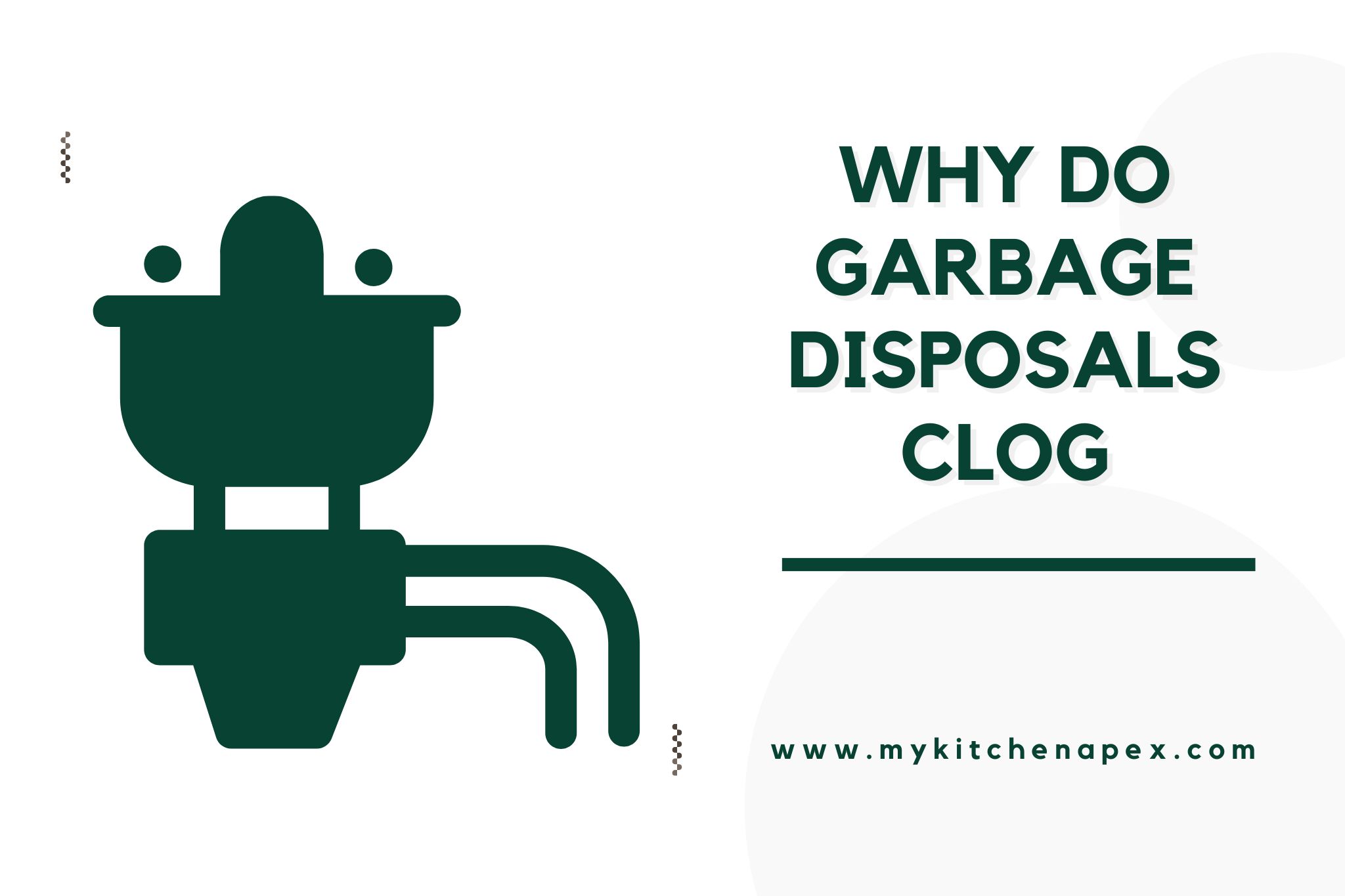Originally Created on: February 25, 2024 @ 4:11 am
Are you tired of dealing with a clogged garbage disposal? Do you find yourself wondering why it seems to happen so often? It can be frustrating to constantly deal with the inconvenience and potential mess of a clogged disposal, but understanding the reasons behind it can help you prevent it from happening in the future.
One common reason for garbage disposal clogs is improper use and maintenance. Many people mistakenly believe that their disposal can handle anything, from food scraps to greasy leftovers. However, certain items can wreak havoc on your disposal, leading to frustrating clogs and potential damage. Understanding what should and shouldn’t go down your disposal can save you a lot of headache in the long run.
Table of Content
Highlights:
- Improper use and maintenance
- Presence of hard or fibrous materials
- Putting non-food items down the disposal
why do garbage disposals clog
Garbage disposals can clog for a variety of reasons, including putting the wrong types of food down the disposal, overloading it with too much food at one time, or not running enough water while using it.
Additionally, putting non-food items such as plastic, metal, or glass down the disposal can also lead to clogs. Neglecting to maintain and clean the disposal regularly can also contribute to clogging, as food debris and residue can build up over time.
Another reason why garbage disposals clog is due to the presence of hard or fibrous materials such as fruit pits, bones, or coffee grounds, which can become stuck in the disposal’s blades and cause a blockage.
Lack of proper maintenance, including not regularly servicing and cleaning the disposal, can also lead to buildup and clogs. Ultimately, understanding the common causes of clogs in garbage disposals can help individuals take proactive measures to prevent them and ensure the proper functionality of their units.
You May Also Like: why is garbage disposal connected to dishwasher
Signs of a clogged garbage disposal
Signs of a clogged garbage disposal can include a slow draining sink, a foul odor emanating from the disposal, and a backup in the sink when the disposal is running.
These signs could indicate a clog in the disposal unit itself or in the drain pipes connected to it. It’s important to address a clogged garbage disposal promptly to prevent further damage and potential plumbing issues in the kitchen.
If you notice any of these signs in your kitchen, it’s essential to avoid putting any food waste or foreign objects down the disposal. Attempting to use the disposal when it is clogged can worsen the problem and potentially damage the unit’s motor.
Instead, consider using natural remedies such as baking soda and vinegar or calling a professional plumber to address the clog and ensure the garbage disposal is functioning properly.
Common causes of garbage disposal clogs
Common causes of garbage disposal clogs include putting foods such as grease, potato peels, and coffee grounds down the drain, as these substances can accumulate and create blockages. Additionally, not running enough water while the disposal is in use can lead to clogs, as the waste may not fully flush through the system.
Lastly, failing to regularly clean and maintain the disposal can also contribute to clogs, as food particles and debris can build up over time.
To prevent clogs, it’s important to avoid putting problematic foods down the drain, run plenty of water while using the disposal, and regularly clean and maintain the unit to ensure it continues to function properly.
By following these simple tips, homeowners can minimize the risk of experiencing a clogged garbage disposal and keep their kitchen running smoothly.
Also Read: why is my garbage disposal overflowing
How to prevent garbage disposal clogs
To prevent garbage disposal clogs, it’s essential to avoid putting non-food items down the drain, such as plastic, metal, or paper. Additionally, avoid pouring grease or oil down the disposal, as these can solidify and cause blockages.
Instead, consider using a drain strainer to catch food particles and prevent them from entering the disposal.
Another way to prevent clogs is by running cold water while using the disposal and for a few seconds after to ensure all food particles are flushed out. It’s also important to regularly clean the disposal by using ice cubes and citrus peels to help remove any built-up residue and keep the blades sharp.
By following these preventive measures, you can minimize the risk of garbage disposal clogs and keep your kitchen plumbing in good condition.
Foods that contribute to garbage disposal clogs
Garbage disposal systems can easily become clogged when certain types of food waste are disposed of in them. Fibrous foods like celery, corn husks, and potato peels can wrap around the disposal blades, causing them to jam and potentially leading to clogs.
Additionally, foods high in starch, such as rice and pasta, can expand when mixed with water, creating a pasty substance that can block the pipes.
Oils and fats from cooking should also be avoided as they solidify at room temperature and can build up in the pipes, leading to clogs and potentially costly repairs.
Coffee grounds are another culprit that can accumulate in the pipes and cause clogs, so it’s best to dispose of them in another way, such as composting.
By being mindful of what foods are put down the garbage disposal, homeowners can prevent clogs and keep their plumbing systems running smoothly.
How do you unclog a garbage disposal?
To unclog a garbage disposal, start by turning off the power to the disposal to avoid any accidents. Use a flashlight to inspect the disposal for any visible obstructions such as food debris or foreign objects. Once identified, use long-handled tongs or pliers to carefully remove the clog from the disposal.
After removing the visible clog, pour a combination of hot water and dish soap down the disposal and let it sit for a few minutes. Next, turn the power back on and run the disposal to check if the clog has been cleared. If the clog persists, try using a plunger specifically designed for garbage disposals to apply pressure and dislodge the obstruction.
Also Read: why is my garbage disposal humming
Final Thoughts
Garbage disposals can clog due to improper use, overloading, and lack of maintenance. Signs of a clog include slow draining, foul odors, and sink backup. To prevent clogs, avoid putting problematic foods down the disposal, run plenty of water, and regularly clean the unit.
Fibrous foods, starches, oils, and coffee grounds should be disposed of in other ways to prevent clogs. By following these preventive measures, homeowners can minimize the risk of garbage disposal clogs and keep their kitchen plumbing in good condition.

